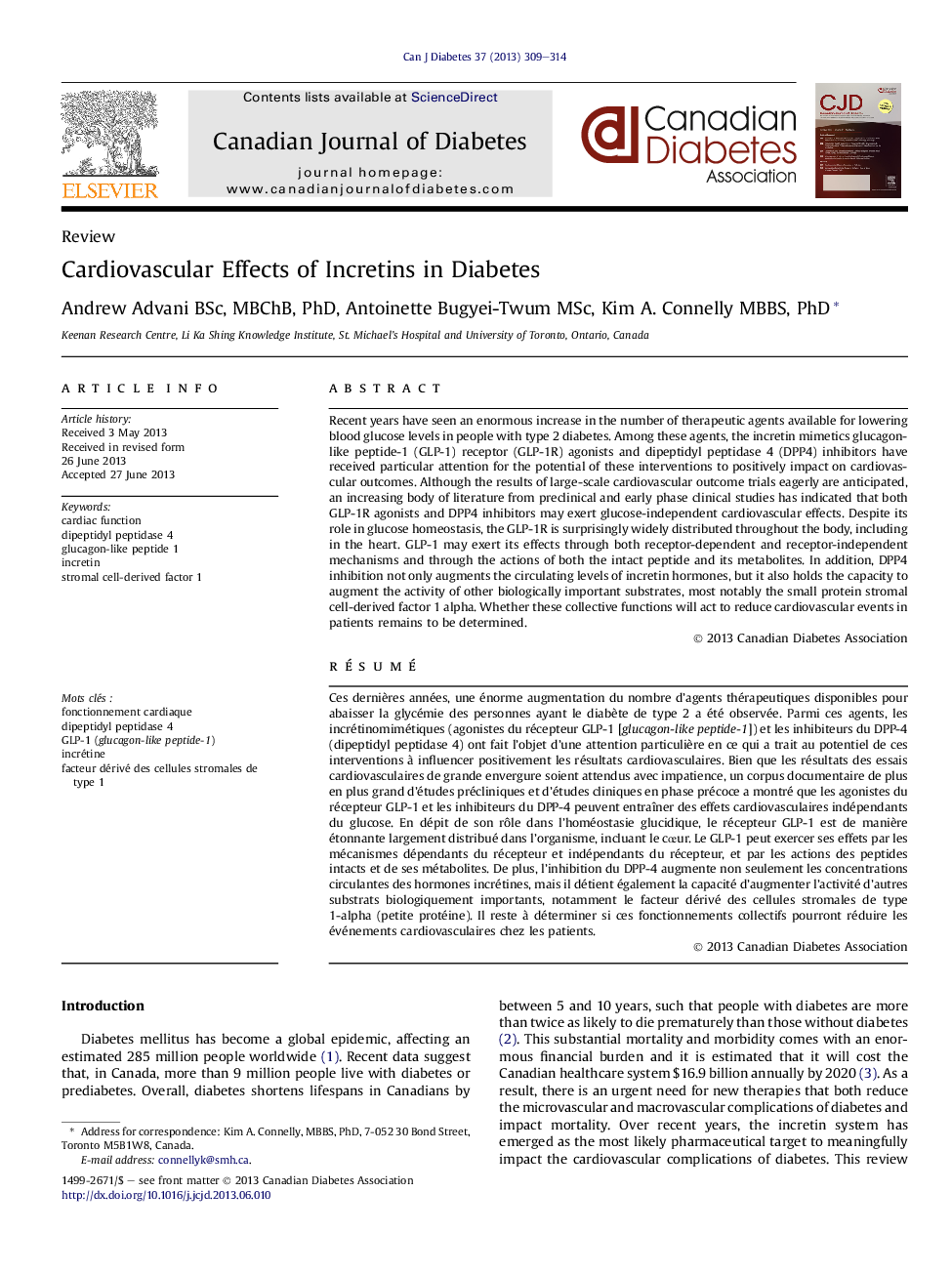| کد مقاله | کد نشریه | سال انتشار | مقاله انگلیسی | نسخه تمام متن |
|---|---|---|---|---|
| 3255337 | 1589352 | 2013 | 6 صفحه PDF | دانلود رایگان |

Recent years have seen an enormous increase in the number of therapeutic agents available for lowering blood glucose levels in people with type 2 diabetes. Among these agents, the incretin mimetics glucagon-like peptide-1 (GLP-1) receptor (GLP-1R) agonists and dipeptidyl peptidase 4 (DPP4) inhibitors have received particular attention for the potential of these interventions to positively impact on cardiovascular outcomes. Although the results of large-scale cardiovascular outcome trials eagerly are anticipated, an increasing body of literature from preclinical and early phase clinical studies has indicated that both GLP-1R agonists and DPP4 inhibitors may exert glucose-independent cardiovascular effects. Despite its role in glucose homeostasis, the GLP-1R is surprisingly widely distributed throughout the body, including in the heart. GLP-1 may exert its effects through both receptor-dependent and receptor-independent mechanisms and through the actions of both the intact peptide and its metabolites. In addition, DPP4 inhibition not only augments the circulating levels of incretin hormones, but it also holds the capacity to augment the activity of other biologically important substrates, most notably the small protein stromal cell-derived factor 1 alpha. Whether these collective functions will act to reduce cardiovascular events in patients remains to be determined.
RésuméCes dernières années, une énorme augmentation du nombre d’agents thérapeutiques disponibles pour abaisser la glycémie des personnes ayant le diabète de type 2 a été observée. Parmi ces agents, les incrétinomimétiques (agonistes du récepteur GLP-1 [glucagon-like peptide-1]) et les inhibiteurs du DPP-4 (dipeptidyl peptidase 4) ont fait l’objet d’une attention particulière en ce qui a trait au potentiel de ces interventions à influencer positivement les résultats cardiovasculaires. Bien que les résultats des essais cardiovasculaires de grande envergure soient attendus avec impatience, un corpus documentaire de plus en plus grand d’études précliniques et d’études cliniques en phase précoce a montré que les agonistes du récepteur GLP-1 et les inhibiteurs du DPP-4 peuvent entraîner des effets cardiovasculaires indépendants du glucose. En dépit de son rôle dans l’homéostasie glucidique, le récepteur GLP-1 est de manière étonnante largement distribué dans l’organisme, incluant le cœur. Le GLP-1 peut exercer ses effets par les mécanismes dépendants du récepteur et indépendants du récepteur, et par les actions des peptides intacts et de ses métabolites. De plus, l’inhibition du DPP-4 augmente non seulement les concentrations circulantes des hormones incrétines, mais il détient également la capacité d’augmenter l’activité d’autres substrats biologiquement importants, notamment le facteur dérivé des cellules stromales de type 1-alpha (petite protéine). Il reste à déterminer si ces fonctionnements collectifs pourront réduire les événements cardiovasculaires chez les patients.
Journal: Canadian Journal of Diabetes - Volume 37, Issue 5, October 2013, Pages 309–314